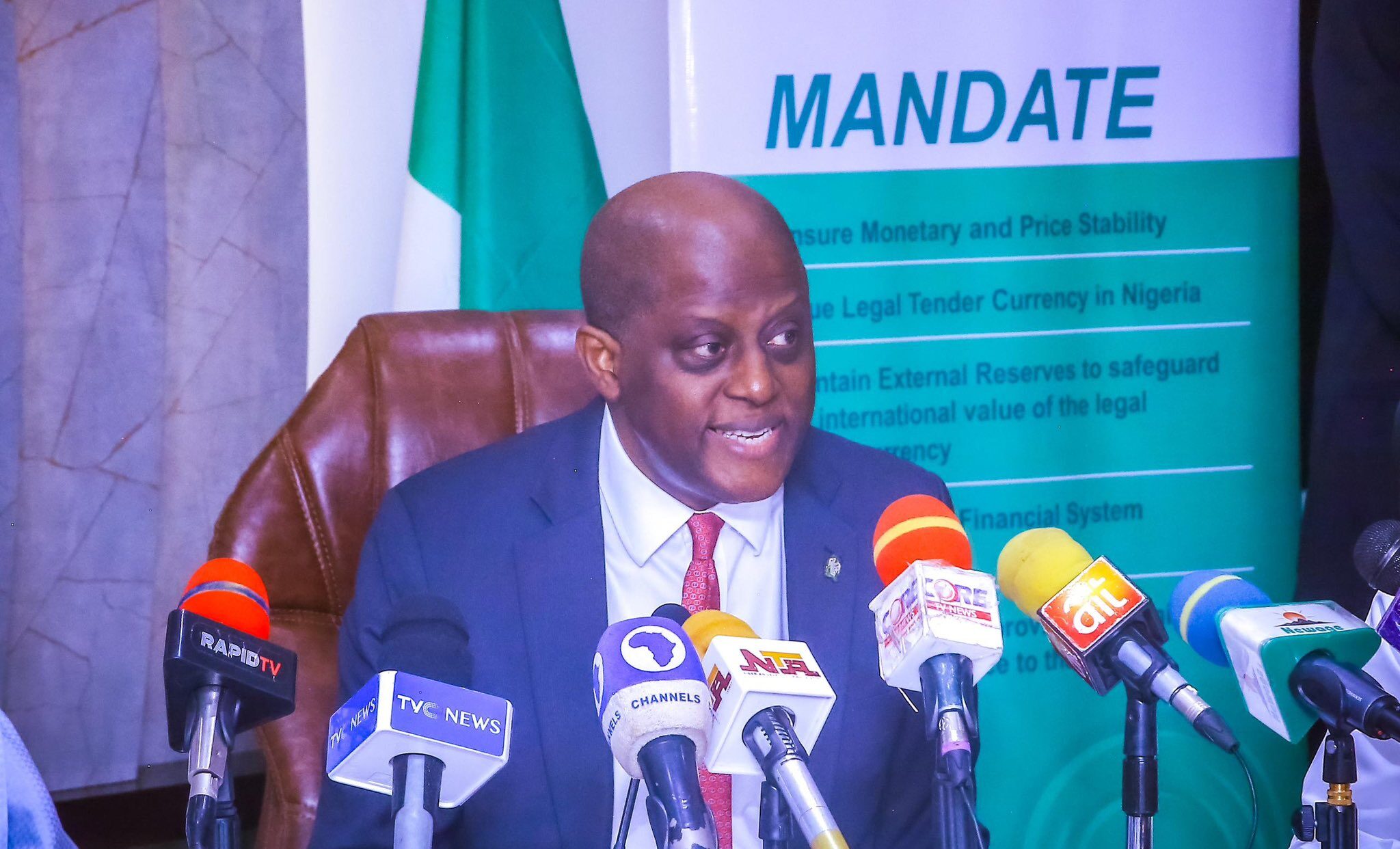The Central Bank of Nigeria (CBN) has announced a comprehensive overhaul of the Nigerian Foreign Exchange Market (NFEM) through revised guidelines aimed at improving efficiency, transparency, and access.
The new measures, outlined in a circular dated November 29, 2024, include consolidating all FX market windows, reintroducing licensed Bureaux de Change (BDCs) into the official market, and mandating centralized pricing through the Electronic Foreign Exchange Matching System (EFEMS).
For the first time in years, licensed BDCs will be allowed to buy foreign exchange directly from Authorized Dealers, subject to a monthly cap.
This decision is expected to enhance retail access to FX for individuals and small businesses, particularly those in underserved areas.
However, the CBN stressed strict compliance, requiring all BDC transactions to adhere to licensing terms and be reported in real-time.
Financial analyst Dr. Adebayo Adekunle described the move as a potential game-changer for retail FX access, noting, “By empowering licensed BDCs, the CBN is addressing a long-standing bottleneck in the retail FX market, which could provide much-needed relief to small businesses.”
In a bid to eliminate inefficiencies, the CBN has consolidated all FX market windows into a single framework.
The previously segmented system—including the Investors & Exporters (I&E) FX Window, SME Window, and Invisible Window—has been replaced by a unified structure to improve price discovery and streamline operations.
READ ALSO: CBN introduces new guidelines for interbank FX trading via Bloomberg BMatch platform
“This consolidation reduces market distortions and simplifies access for legitimate FX needs,” the CBN noted. Experts believe this approach could improve investor confidence by fostering greater transparency and predictability.
A critical component of the guidelines is the introduction of EFEMS, a centralized platform for pricing and executing FX transactions. The system will ensure that all transactions reflect market conditions and provide publicly accessible daily exchange rates.
Governor Olayemi Cardoso highlighted EFEMS as a cornerstone of the reform. “This platform will improve price discovery, enhance transparency, and align the naira’s exchange rate with its true market value,” he said during the Bankers’ Committee Annual Dinner in Lagos.
Economic strategist Titi Akinwunmi praised the initiative, stating, “Centralized pricing will curb speculative practices and promote a more stable FX market.”
To strengthen oversight, the guidelines mandate real-time reporting of FX transactions via an API-based system.
Authorized Dealers must report transactions within 10 minutes, while BDCs are required to submit daily activity reports through automated portals. Additionally, all participants must annually attest to compliance with the Nigerian FX Code of Ethics and Conduct.
The CBN has emphasized accountability at the highest levels, requiring CEOs, boards, and compliance officers to take personal responsibility for adherence to the code.
The new guidelines formalize interbank FX trading, setting clear expectations for Authorized Dealers to ensure greater operational consistency.
The reintegration of BDCs is expected to simplify FX access for retail users, while centralized pricing mechanisms ensure transparency. However, stricter compliance measures may limit the activities of unlicensed intermediaries.
Market players, including Authorized Dealers and BDCs, must invest in technology upgrades to meet the real-time reporting and transparency standards.
The introduction of an ethics attestation signals the CBN’s commitment to holding participants accountable for market integrity.
The unified FX framework is anticipated to enhance investor confidence, attract foreign inflows, and stabilize the naira. However, success hinges on effective enforcement and liquidity management.
Financial economist Dr. Kehinde Owolabi commented, “The consolidation of FX windows sends a clear message to investors that Nigeria is committed to creating a more predictable and transparent currency market.”

 Health5 days ago
Health5 days ago
 Entertainment7 days ago
Entertainment7 days ago
 Crime6 days ago
Crime6 days ago
 Education1 week ago
Education1 week ago
 Health1 week ago
Health1 week ago
 Comments and Issues6 days ago
Comments and Issues6 days ago
 Football7 days ago
Football7 days ago
 Latest6 days ago
Latest6 days ago

